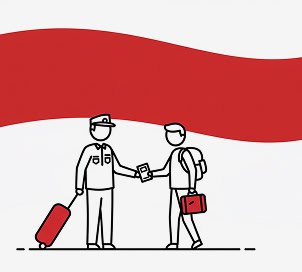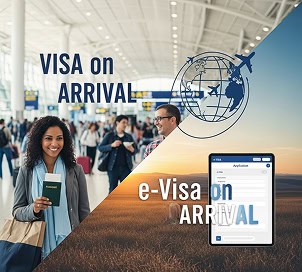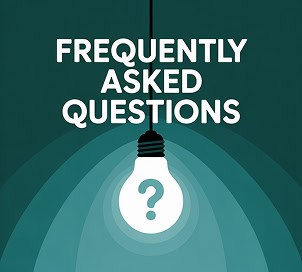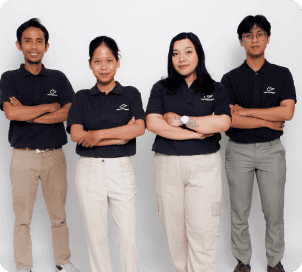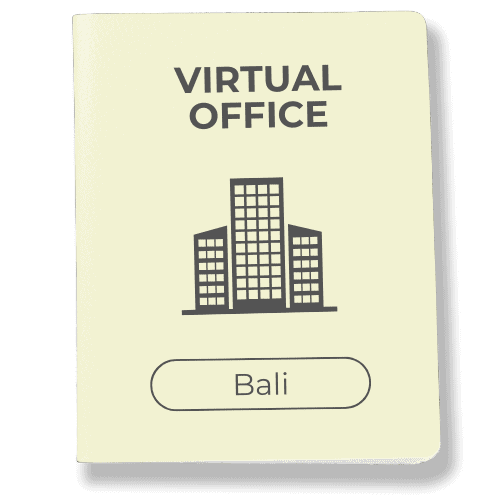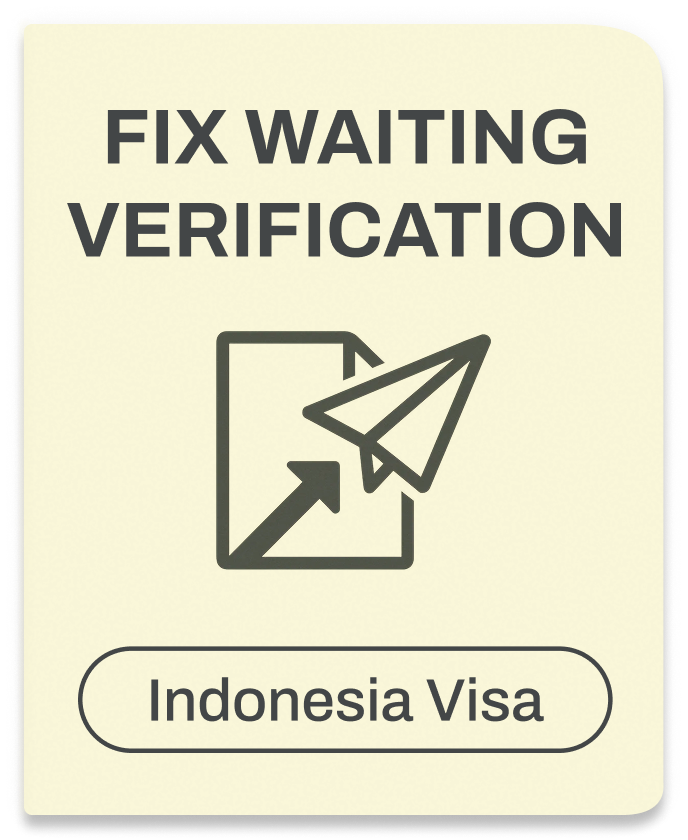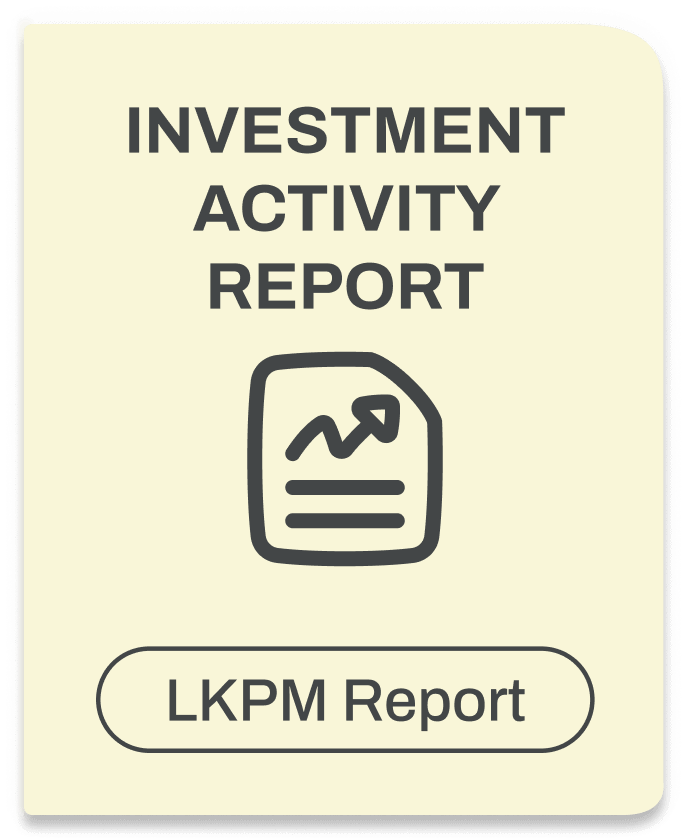All Indonesian Visa Types
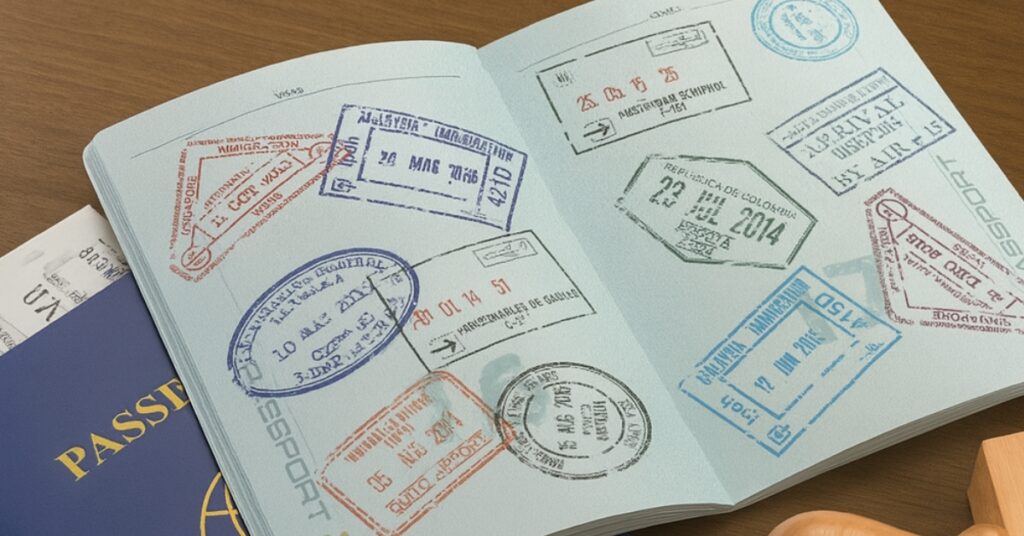
Indonesia has a visa system that might seem complicated at first glance, but it’s actually well-organized once you understand how it works. From quick getaways to Bali on a Visa on Arrival, to settling down long-term with an Investor KITAS or a Retirement KITAP, each visa serves a specific purpose and comes with its own rules, benefits, and stay durations.
At the top level, visas are categorized based on the duration of your stay and the purpose of your visit. Some are ideal for tourists visiting temples and beaches for a short period. Others are for business professionals flying in for meetings, investors managing companies, retirees enjoying island life, or digital nomads working remotely under Indonesia’s new visa programs.
In this article, we break down each Indonesian visa type in clear, simple language. You’ll learn what visa codes like C1, D2, or E33G mean, what activities they allow, how long you can stay, and whether you need a local sponsor. By understanding your options now, you’ll save time, avoid costly mistakes, and make your Indonesian journey smooth, legal, and stress-free.
Table of Contents
Visa Overview by Stay Duration
Indonesia offers various visas based on the duration of your stay. There are several types of visas available, and Indonesian visas are designed for multiple purposes, including tourism, business, work, or long-term residence. Some are for short visits, while others let you live here for years.
- Single-entry visas are for short stays of 30 to 180 days. These are great if you’re coming for tourism, business meetings, volunteering, or short courses. You enter once and must leave before it expires.
- Multiple-entry visas allow you to enter and exit multiple times within a 60-day to 2-year period. They’re perfect for business travelers or those exploring investment opportunities who need to visit Indonesia often without reapplying each time.
- Longer Stay Visas (KITAS) are for individuals who wish to reside in Indonesia for a period of 1 to 5 years. These include visas for digital nomads, workers, investors, retirees, and family members. You typically need a local sponsor for most of them, such as a company, school, or family member.
- Permanent Stay Permits (KITAP) are issued to individuals who intend to reside in Indonesia on a permanent basis. They last 5 years and can be extended forever. KITAP is for investors, retirees, workers, or spouses of Indonesians who have already held a KITAS for several years.
Each visa type has its own set of rules, benefits, and costs, and each comes with specific visa requirements that travelers must fulfill. Choosing the right one makes your stay smooth and worry-free. In the following sections, we will break down each visa in simple terms to help you decide which one best fits your needs.
5 Indonesia Visa Types
Tourist & Short-Stay Visas (C‑category)
These are for short visits, including tourism (also known as a holiday visa), visiting family, volunteering, and short courses (lasting 30–180 days).
- C1: Tourist single-entry (holiday visa)
- C2: Business single-entry
- C3 to C11: Specialty visas like medical (C‑3), volunteer (C‑6), short‑course (C‑9), exhibitions (C‑11), and internships
These visas allow one entry and typically require exit before expiry. The visa application for these short-stay visas is usually completed online through official Indonesian portals.
Multiple‑Entry Visas (D‑category)
For those visiting Indonesia multiple times within a set period (up to 2 years).
- D1: Tourist multiple-entry – enter and exit freely, stays up to 60 days at a time
- D2: Business multiple-entry (C2 business visa) – a business visa for business meetings/trips, typically requiring sponsorship or an invitation from an Indonesian company
- D12: Pre‑investment – research or explore business opportunities
Visa applications for multiple-entry visas, including business visas, typically require the online submission of supporting documents and may involve special approval, depending on the applicant’s nationality.
Temporary Stay Permits / KITAS (E‑category)
For longer stays (1–5 years), requiring a sponsor. Common types:
- E23: Work KITAS – for foreign employees
- E28A: Investor KITAS – for foreign business owners with the required capital
- E31A/B/C/E: Family KITAS (spouse/dependents of Indonesian/KITAS or KITAP holders)
- E33F/E33E: Retirement and Silver-Hair KITAS – for retirees
- E33G: Digital Nomad KITAS – for remote workers
- E‑28B/C/D: Golden Visa – for high‑value investors/families
- Second Home/E32C/D: Ex-Indonesian citizens or long-term residents
These visas are issued as a Visa, converted to an ITAS stamp, and come with a KITAS card.
Permanent Stay Permits / KITAP
For those ready to live permanently in Indonesia (for 5 years, renewable indefinitely).
- KITAP is available to long-term holders of KITAS (work, investor, spouse, retiree), former Indonesian citizens, and others who meet the eligibility criteria.
Visa on Arrival & e‑VOA (B‑category/VOA)
For quick, short-term visits at arrival airports, travelers can use the Visa on Arrival (VOA) option.
- Typically valid for 30 days, extendable once. It’s not officially categorized as a visitor visa, but it’s widely used and often referred to as B-1 VOA or simply VOA.
Citizens of eligible countries, such as Australia, can apply for either the visa on arrival or the electronic visa (e-VOA) option when visiting Indonesia.
Payment for the visa should be made through the official immigration website, ensuring you use official immigration channels for secure and authorized processing.
If you need assistance or have questions about the process, contact the relevant authorities or seek help from official support services.
Single-Entry Visas
Indonesia offers various single-entry visas for individuals planning to visit for a specific purpose. Before applying, ensure that you have a valid passport, as Indonesia requires your passport to be valid for at least six months from the date of your arrival. Always check your passport and any accompanying passports for validity and conditions to avoid issues during entry. Single entry means you can only enter Indonesia once with that visa. If you leave, you will need to reapply to be considered for return. Let’s go through each type.
e-Visa On Arrival (B1)
This visa is for individuals traveling for tourism, family visits, business meetings, or in transit. Before applying, make sure your passport is valid for at least six months from the date of entry. You can obtain the e-Visa on Arrival online before flying to Indonesia. It’s easy and quick. You can stay for 30 days and then extend your stay for an additional 30 days. If you plan to travel to nearby countries and return, you will need to reapply after your departure.
Tourist Single-Entry Visa (C1)
This is for people who want to stay longer for tourism or family visits. You can stay for up to 60 days and extend your stay for an additional 120 days, for a total of 180 days. You will need a local sponsor, such as a friend, family member, or visa agent, to apply for this visa. If you plan to explore Indonesia at a leisurely pace for a few months, this is a good option.
Business Single-Entry Visa (C2)
This visa is for people coming for business meetings, seminars, or market research. It does not allow you to work or earn income in Indonesia. You need a sponsor company in Indonesia to be eligible for the application. It is usually valid for 60 days and can be extended if required.
Medical Visit Visa (C3)
This is for individuals who travel to Indonesia for medical treatment or routine check-ups. You need a letter from the hospital or clinic in Indonesia that will treat you. The visa typically allows you to stay for up to 60 days and can be extended if your treatment lasts longer than this period.
Volunteer Visa (C6)
This visa is for people who come to volunteer in NGOs or community programs in Indonesia. You need a sponsoring organization to apply for this. It allows you to stay and help legally, usually for up to 60 days, with possible extensions.
Short Course Visa (C9)
If you plan to join a short training or course, this is the visa you need. It is for courses that are not long-term studies, for example, a one-month Bahasa Indonesia course. You need an acceptance letter from the course provider to apply.
Exhibition Visa (C11)
This visa is for people coming to Indonesia to join exhibitions, trade shows, or expos. If you plan to display products or services at an event, you will need this visa. The event organizer usually provides the sponsorship letter required for your application.
Academic Internship Visa (C22A)
This program is designed for students who wish to undertake an internship at an Indonesian university or research center as part of their studies. You need a sponsoring academic institution to submit your application.
Company Internship Visa (C22B)
It is similar to C22A, but this is for internships in companies, not schools. For example, if you study hospitality and intern at a hotel in Bali, you use this visa. You need the company to sponsor you.
Multiple-Entry Visas (D Visas)
Indonesia offers Multiple-Entry Visit Visas, also known as D Visas, for individuals who frequently need to visit the country. These visas permit you to enter and exit multiple times without requiring reapplication for each visit. Here are the three main types:
Tourist Multiple-Entry Visa (D1)
This visa is for individuals who frequently visit Indonesia for tourism purposes. For example, if you love Bali and plan to return every few months, this visa is ideal for you.
- What it’s for: Visiting friends, enjoying holidays, or exploring different islands multiple times in a year.
- When to apply: If you travel to Indonesia often for tourism and don’t want to apply for a new visa each time.
- Validity: Usually valid for 1 year, with each visit allowing a stay of up to 60 days.
Business Multiple-Entry Visa (D2)
This visa is for business professionals who frequently need to enter Indonesia for meetings, seminars, or to explore business opportunities. It does not allow you to work as an employee, but it is useful for business trips.
- What it’s for: Attending meetings, conferences, or business negotiations.
- When to apply: If you need to visit Indonesia multiple times for your business but don’t plan to live there or be employed by an Indonesian company.
- Validity: Typically valid for 1 to 2 years, with each visit allowing a stay of up to 60 days.
Pre-Investment Visa (D12)
This visa is for foreign investors who wish to visit Indonesia multiple times to explore investment opportunities before deciding to establish a company or invest officially.
- What it’s for: Doing market research, meeting potential partners, checking business locations, and preparing for an investment.
- When to apply: If you plan to set up a business in Indonesia but need to come multiple times to prepare everything before officially investing.
- Validity: Usually valid for 1 year, with each stay allowing up to 60 days.
Longer Stay Visas (KITAS)
These visas let you stay in Indonesia for one year or more. They are for individuals who wish to work, invest, retire, or reside in Indonesia for an extended period.
Digital Nomad Visa (E33G)
This visa is for people who work online for a company outside Indonesia. For example, if you are a graphic designer working remotely for a US company, you can apply for this visa. It allows you to live in Indonesia for up to 1 year without paying local income tax, as your income originates from abroad.
Work KITAS (E23)
This visa is for foreigners who get a job in Indonesia. Your company in Indonesia sponsors you. You need this visa if you will work for an Indonesian company, school, or organization. It is typically valid for one year and can be extended as long as you remain employed by the same employer.
Investor KITAS (E28A)
This visa is for people who invest in an Indonesian company. For example, if you start a PT PMA (foreign-owned company) or buy shares in one, you can get this visa. It allows you to stay and manage your investment in Indonesia without requiring a work visa. Usually, you must invest a certain minimum amount to qualify.
Spouse KITAS (E31A)
If you are married to an Indonesian citizen, you may be eligible to apply for this visa. It lets you live in Indonesia with your spouse. However, please note that this visa does not permit you to work. It is only for staying and living with your Indonesian spouse.
Dependent KITAS (E31A)
This visa is for children or other family members who depend on someone with a KITAS. For example, if a foreign worker has a KITAS, their children can obtain a Dependent KITAS to reside with them in Indonesia. This visa does not allow them to work.
Artist KITAS (E23R)
This is for artists who want to work in Indonesia, such as musicians, dancers, or painters hired by an Indonesian organization or event. It allows them to stay and work legally on their art projects or performances.
Retirement KITAS (E33F)
If you are 55 years or older and want to retire in Indonesia, this visa is for you. You need to show proof of pension or retirement income. It allows you to live in Indonesia long-term, but does not permit you to work.
Silver Hair KITAS (E33E)
This is similar to the Retirement KITAS. It is for elderly foreigners who want to live in Indonesia peacefully in their later years. Requirements are identical to the Retirement KITAS, which requires proof of income and age over 55.
Golden Visa (E28B/C/D)
The Golden Visa is intended for high-net-worth individuals, top talents, or significant investors. It lets you stay in Indonesia for 5 to 10 years. For example, if you invest a large amount of money in Indonesia or have special skills that benefit the country, you may qualify.
Dependent Golden Visa (E31B/E/H/J)
This visa is for family members of Golden Visa holders. If your spouse or parent holds a Golden Visa, you can obtain this visa to reside with them in Indonesia. It does not let you work but enables you to stay long-term.
Second Home Visa (E33)
This visa is for foreigners who want to make Indonesia their second home. You need to show proof of funds or assets to apply. It allows you to live in Indonesia for 5 to 10 years.
Ex-Indonesian Citizen Visa (E32C/D)
If you were formerly an Indonesian citizen but now hold another nationality, you are eligible to apply for this visa. It allows you to live in Indonesia again for a longer period, reconnecting with family and your home country.
Permanent Stay Permits (KITAP)
KITAP is a permanent stay permit in Indonesia. It lets you live in Indonesia for 5 years at a time. You can renew it without needing to leave the country. KITAP is akin to a long-term visa for individuals seeking to reside in Indonesia.
Work KITAP
This KITAP is for foreigners who have been working in Indonesia for a long time. Usually, you can apply for it after having a Work KITAS for at least 3 years with the same company. It is particularly useful if you plan to build your career or manage a business in Indonesia for an extended period.
Investor KITAP
This is for foreign investors who own a company in Indonesia. You can apply for Investor KITAP if:
- You have already held an Investor KITAS for 3 years, or
- You invest a large amount that meets the immigration requirement.
It allows you to live and manage your investment in Indonesia without requiring yearly visa extensions.
Spouse KITAP
If you are married to an Indonesian citizen, you can get a Spouse KITAP. The condition is:
- You have been married for at least 2 years, and
- You already have a Spouse KITAS.
This KITAP is popular for foreigners who settle and build a family in Indonesia.
Dependent KITAP
This KITAP is for the dependents of KITAP holders, such as children. For example, if a parent has a Work KITAP or Investor KITAP, their child can apply for Dependent KITAP to stay with them. The main condition is that the parent or spouse already holds a KITAP.
Retirement KITAP
This is for retirees who wish to reside in Indonesia on a long-term basis. The conditions include:
- You are at least 55 years old
- You have held a Retirement KITAS for a few years first (usually 3-4 years)
- You have proof of pension income or savings to support yourself.
Retirement KITAP is ideal if you plan to spend your retirement years enjoying life in Indonesia.
Choosing the Right Visa
- Comparison table: visa type, code, purpose, validity, cost
- Decision tree to guide selection
For further information about Indonesia visa types and requirements, please visit the official immigration website.
Frequently Asked Questions (FAQs)
Q: What do visa codes mean?
A: Visa codes are letters (sometimes with numbers) used by Indonesian immigration to identify the type of visa you hold. For example, C317 is a visa code used for a limited stay permit (KITAS) for work purposes. Each code informs immigration officers about the purpose of your stay, the permitted activities, and the duration of your stay in Indonesia.
Q: What happens if I overstay my visa?
A: If you overstay your visa, you will be fined IDR 1,000,000 (about USD 65) per day of overstay. If you overstay for too long (typically over 60 days), it can lead to deportation, blacklisting, or legal trouble. Always extend or renew your visa on time to avoid problems.
Q: Can I work remotely on a tourist visa?
A: Technically, no. Indonesia’s tourist visa does not officially allow you to work, even remotely, for a foreign company. However, many digital nomads do work online while on a tourist visa. Still, this carries risks if immigration checks your activities, as working without the proper visa (like a digital nomad visa or business visa) is not permitted.
Q: Do citizens of certain countries need special approval for an Indonesian visa?
A: Yes, citizens of some countries, such as North Korea (DPRK), require special approval from the Directorate General of Immigration in Jakarta before a visa can be issued.
Q: What is the legal authority for Indonesian visa regulations?
A: Visa regulations and requirements are based on official government legislation and decrees issued by the Minister of Law and Human Rights of the Republic of Indonesia.
Q: What is the Bali tourism levy, and what is its purpose?
A: The Bali tourism levy is a fee collected from international visitors to help protect, preserve, and maintain Bali’s local culture and natural environment.
Ready to Apply or Extend Your Visa?
Let our visa specialists handle your application.

